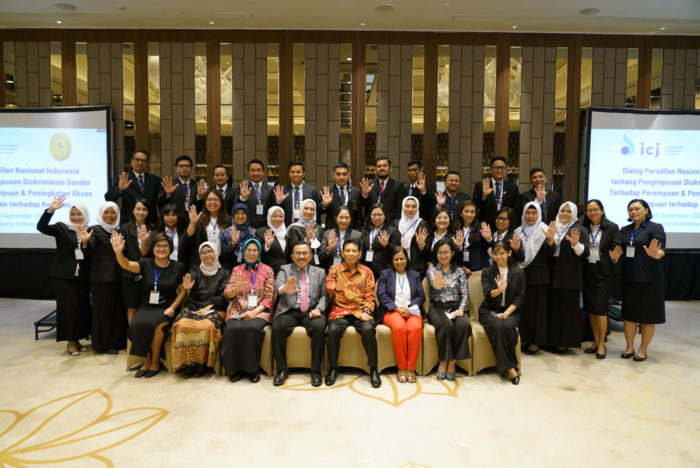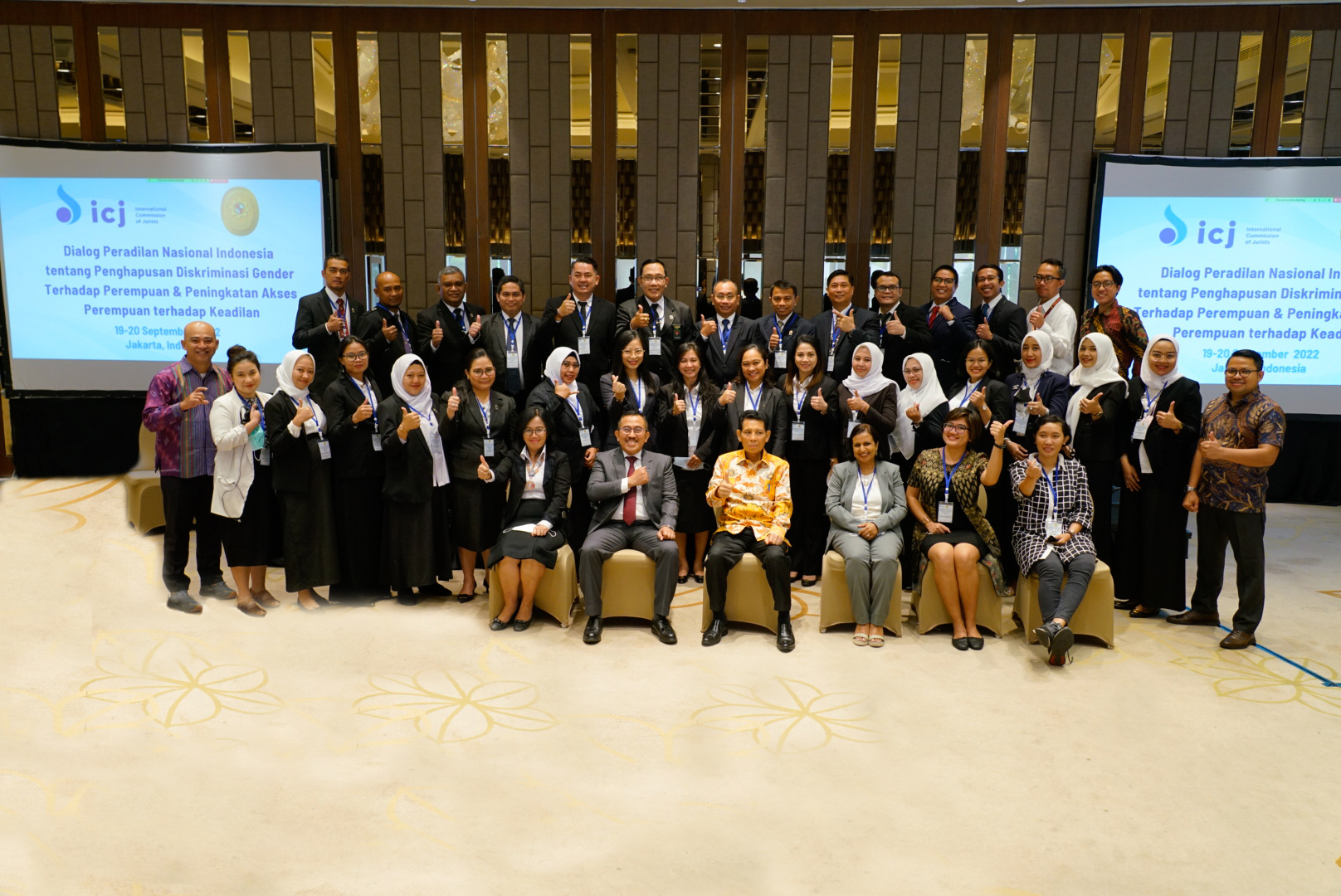The ICJ, in partnership with the Indonesia Judicial Training Center Institution (Litbangdiklatkumdil), convened two judicial dialogues from the 19-20 September 2022 and 22-23 September 2022 in Jakarta, Indonesia, aimed at addressing gender perspectives in judicial acts and advancing women’s access to justice.
The judicial dialogues provided a platform for judges to share experiences in the adjudication of gender-related cases vis-à-vis their compliance with international human rights law and standards, as well as to consider strategies to address challenges and make progress on the advancement of women’s access to justice in Indonesia.
Indonesia has already incorporated the 2016 Bangkok General Guidance for Judges in applying a gender perspective into its national laws in the form of Supreme Court Regulation 3 of 2017 (Regulation). The ICJ is encouraged that the Indonesian judiciary has elected it to review the 2022 updated version of the Bangkok General Guidance for potential adoption. The General Guidance, adopted by judges in the Asia Region through a process convened by the ICJ, is aimed at assisting judicial actors to effectively incorporate a gender perspective into their work.
There were 27 and 25 participants in the two training groups made up of first instance general court judges drawn from national courts. The judicial dialogues featured international and Indonesian speakers, including; judges, lawyers, legal experts, the legal aid institutions, and Komnas Perempuan (National Commission on Violence against Women).
Justice Ayesha Malik from the Pakistan Supreme Court stressed: “It is important to keep in mind that judges have a role when creating an enabling environment through your judgments. Use your judgment so that she has more confidence in the system and that her rights are enforced. You can always use international treaties and documents (CEDAW, UDHR etc) by way of reference. It just makes your point stronger.”
Justice Prof. Dr. Takdir Rahmadi noted that there remained significant challenges in the judicial implementation of Supreme Court Regulation which was adopted from the Bangkok General Guidance. Many judges from the first and second instance courts prefer to follow customary (adat) law that is very patrilineal, instead of following the jurisprudence or the Regulation and even CEDAW. He explained that the Indonesian Law of Basic Judiciary (UU Pokok Kehakiman) requires judges to extract the norms that are applicable in society. However, if the customary (adat) law is in contradiction with the national law, then the national law prevails. He asked all participants to follow jurisprudence and apply the materials in this dialogue.

Judge Dr. Nirwana Diharmzah Pananrang recommended that judges refer to international law: “The State must ensure that there is no discrimination. We as judges who are part of the judiciary of a country must not participate in discrimination that may occur in other state institutions. We have to make breakthroughs, fill the legal vacuum, and consider international law.”
Kaajal Ramjathan-Keogh, Director of the ICJ Africa Regional Programme, who also leads its Women’s Access to Justice Project, explained that the 2022 Bangkok General Guidance calls upon judges to ensure unhindered access to justice for women being guided by the principle of equality and non-discrimination, and by identifying, addressing and eliminating gender discriminatory practices. The 2022 Bangkok General Guidance seeks to alert actors from all justice systems, formal and informal, and at all levels, to the fact that harmful gender stereotypes and gender biases promote inequality and perpetuate discrimination, thereby undermining access to justice for all. She explained that the 2022 Bangkok General Guidance addresses recommendations to the courts with respect to the type of institutional policies that they should adopt to help them become more gender sensitive and gender responsive.
ICJ Indonesia National Legal Advisor, Ruth Panjaitan, concluded: “It is a big and noble task for all participants to now apply all the knowledge into practice for the advancement of access to justice for women in Indonesia.”
Contact
Ruth Panjaitan, National Legal Advisor for Indonesia, International Commission of Jurists, e: ruthstephani.panjaitan@icj.org




